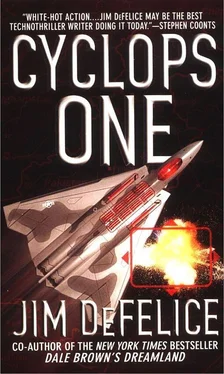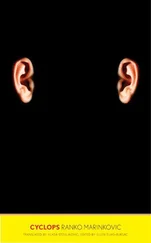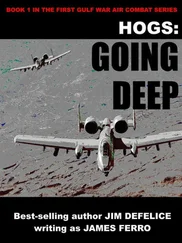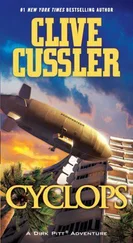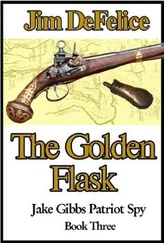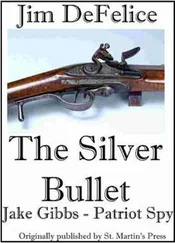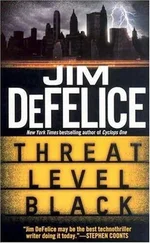Fisher glanced up and saw him staring. “Want some?” he asked.
Duke shook his head, then went over and sat next to him.
“We’ll be landing in Afghanistan in an hour or so,” Duke told him.
“Sounds good.”
“We want to take right off.”
“Makes sense,” said Fisher.
“We have a transport en route, an MV-22. It’s going to meet us on the tarmac and fly us right to the wreckage they’ve spotted. Assuming that’s the wreckage. But I guess that’s why you’re here, right? You’re the expert.”
“MV-22,” said Fisher. He took a long sip from the thermos bottle. “That’s the airplane that thinks it’s a helicopter, right?”
“The Osprey, yes, sir. The MV-22 is a Special Forces version. Equipped with a chain gun in the nose, ports for mini-guns and additional weapons. Whatever we need we can get. We’ll get you in and out, no sweat.”
“I investigated a crash of one of those three years ago, looking for sabotage,” said Fisher. “Wasn’t sabotage.”
“Uh-huh?”
“I investigated another one of those two years ago. That wasn’t sabotage, either.”
“Are you making a point, Mr. Fisher?”
“You sure I can’t smoke in here?”
* * *
Some hours later, Andy Fisher stepped out of the MV-22 into six inches of snow, surveying the wreckage of what had until very recently been a 767. He’d seen one of the engines as they’d flown in, and that would be enough to definitively ID the plane. Which was a good thing, because the rest of the aircraft had disintegrated beyond recognition.
Airplanes could do funny things when they crashed, but usually what they did fell into general patterns. Fisher wasn’t a crash expert per se: The real experts got off on analyzing the way metal twisted, and could look at a burn pattern on a piece of cloth and tell you what the pilot had for lunch. Still, Fisher had seen enough to know that this plane had been wracked by something more than an anti-air missile before it exploded.
Interestingly enough, the revolving turret where the laser had fired from was only beaten to shit as opposed to disintegrated beyond recognition. So it was easy to cinch the identification.
“Our plane?” asked Duke.
“Not a doubt,” said Fisher. “When do we get the forensics team in?”
“We’re in China, Mr. Fisher. You aren’t getting any forensics people in here. There’s bound to be some sort of Chinese army patrol sooner or later. My orders are to assist you making an ID, then blow the remains up into little pieces.”
“Be a hell of a lot better if we had a forensics team.”
“Be a hell of a lot better if we were sitting on a beach, catchin’ rays,” said the SF captain.
“Good point,” said Fisher. “We want to take samples so we can check for explosives. Something helped the plane go boom besides a bad attitude.”
“Hey, down here!” shouted one of the soldiers from a ravine about fifty feet away.
Fisher tagged after Duke, sliding down the rocks to a relatively flat plain about twenty feet wide. The soldier was standing over a twisted black blob of gear that looked as if it were covered with tar.
“It’s a boot,” said Fisher.
“How the hell can you tell?”
Fisher knelt down near it. “Believe me. That’s what it is.” He picked it up and looked at it. The bottom half had been burned by high heat; Fisher guessed it would help the lab people recreate the fire and explosion. A bit of sock was evident in the mass, so even if there wasn’t any flesh in the blob there, they’d have a shot at DNA.
Maybe. Of course, if the blob included bones or even just burnt flesh, that’d be even better.
The FBI agent held it out to one of the soldiers, who suddenly looked a little pale. “Evidence.”
“Don’t you want to, uh, put it in a bag or something?”
“Nah,” said Fisher. “By the way, the foot’s not in it.”
“How do you know?”
“Just guessing,” Fisher admitted. “But if I told you it was, you wouldn’t take it, right?”
“How can it be empty?” said the trooper, still hesitating.
“Boot probably got blown right off while the foot and leg were burning to a crisp along with the rest of the body. Lab guys’ll get off on this.”
The soldier took the boot without further comment.
Fisher walked down another slope, surveying more of the scattered bits and pieces. A piece of green cloth lay tangled against a few rocks about twenty feet to the right, tangled with a long piece of burnt metal. Fisher bent down and saw that it was a collar from a flight suit — or at least might have been. He folded it and put it in a paper envelope from his jacket.
“Watcha got?” asked Duke, tramping down the slope.
“Cloth. We’ll look for DNA.”
“Yeah? Will that work?”
“Gives the lab something to do,” said Fisher.
“The pilots have a good read on some more pieces west,” said Duke, who’d been talking to them on his radio. “There’s some good hunks out there.”
Fisher took a long drag on his cigarette.
“I need as many pieces of metal as we can get to test for explosives.”
“Which pieces?”
“The ones where the bomb was,” said Fisher, throwing his cigarette butt away and walking back up the hill.
Clayton Bonham had always believed that you could tell a great deal about a man by what he ordered at an expensive restaurant. In his particular case, the filet mignon — medium rare, with a pepper sauce and oyster mushrooms — meant that he was a solid, conservative man who appreciated the finer things in life, but nonetheless eschewed flamboyance.
The choices of his guests fell in line with his theory. Congressman Taft had chosen a nondescript chicken and pasta dish from the lite side of the menu, an attempt not only to demonstrate that he was watching his weight but also that he was not a spendthrift; the dish was nearly the least expensive entrée, though least expensive was a relative term on M Street. Jeff Segrest, by contrast, had ordered a grilled salmon soup with foie gras mousse floating on a black corn taco — a bizarre though thoughtlessly flamboyant mélange that looked about as appetizing as the napkin covering the wrought-silver bread basket.
The restaurant, named James after its owner and executive chef, ranked comfortably in the top tier of Washington power eateries, a fact that Bonham kept firmly in mind as he ate, since it meant that their conversation had to be circumscribed. This was not necessarily a bad thing, however; while he found Taft inoffensive, Segrest was a serial blowhard, and only the possibility that he would be overheard kept his boasts within somewhat reasonable bounds.
It also meant that he was semidiscreet regarding Cyclops, which was what both men wanted to talk about.
“Revolutionary,” said Segrest. “That was the President’s word.”
“Yes,” said Bonham. Things in India had gone remarkably well — much better, in fact, than he could have hoped. Incredibly better. The intelligence agencies were closing in on the wreckage, with the early reports indicating that an Indian SAM had taken out the plane. Depending on what theory they began to favor about the aircraft’s theft, evidence would be supplied — nothing firm, of course, just hints and suggestions. A money transfer, a name on a visitors’ list, a credit card transaction — the sort of things the sleuth Fisher would eat up.
The bastard had sniffed out the lake plan somehow, even though they hadn’t gone through with it. Bonham still hoped Fisher might manage to convince someone to have the damn thing drained. Serve the idiot right.
“Do you think this is the end of war, General?” asked Taft.
Читать дальше
